11 Things Good Parents Tell Their Kids Without Realizing How Bad It Is For Them
Parents with no filter can damage their family relationships.
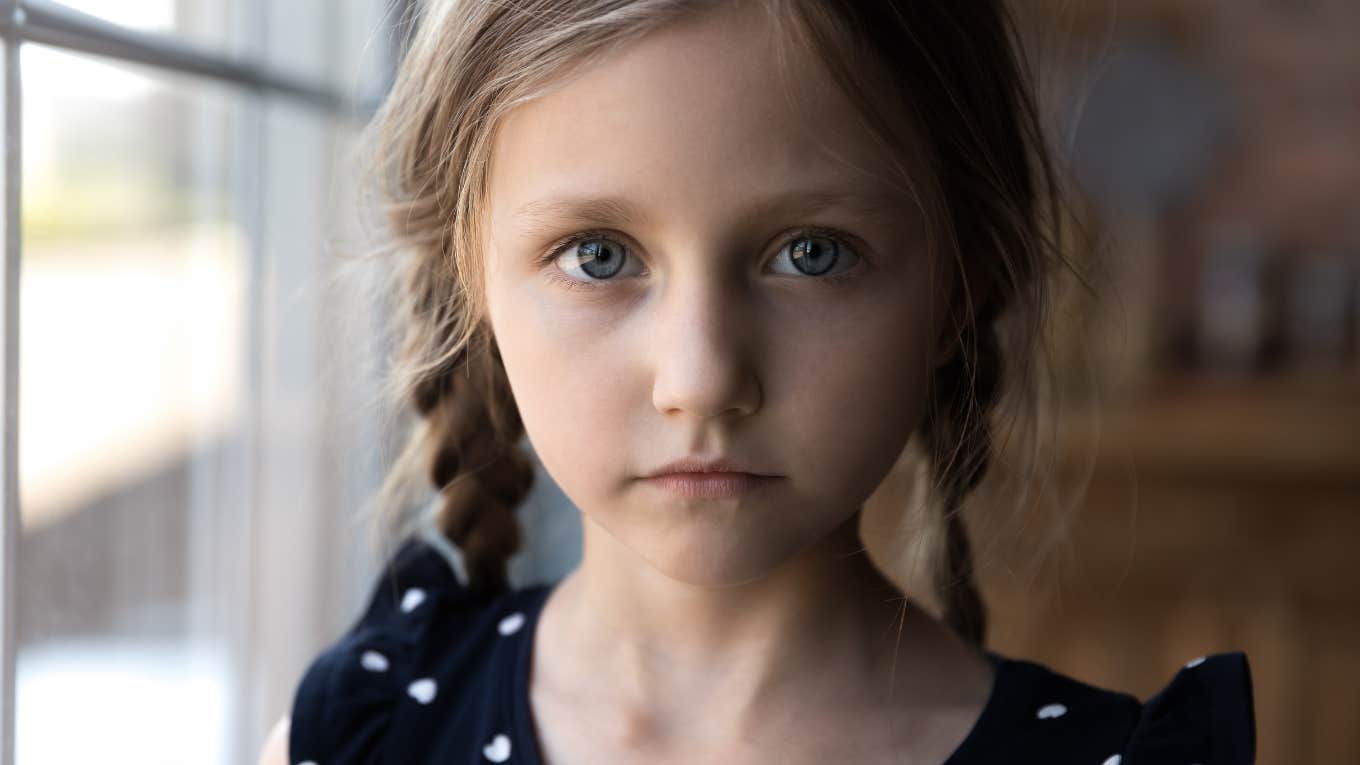 fizkes | Shutterstock
fizkes | Shutterstock The communication skills parents instill in their children isn't just crafted by how they speak to each other, but how they communicate with everyone, modeling social interactions and self-awareness. Like a study from the Journal of Child and Family Studies suggests, parent-child communication doesn't just impact a child's communication skills, but also their general demeanor and development — from aggression, to mental health, relationship building, and self-esteem.
Many of the things good parents tell their kids without realizing how bad it is for them aren't inherently malicious, but models of mentalities — like personal low self-esteem and insecurity — that they could sadly adopt in their own lives. Watching your parents and communicating with them in the most vulnerable stages of your life is profound, which is why everyone should be intentional about what they're bringing home and around their children.
Here are 11 things good parents tell their kids without realizing how bad it is for them
1. Family financial struggles
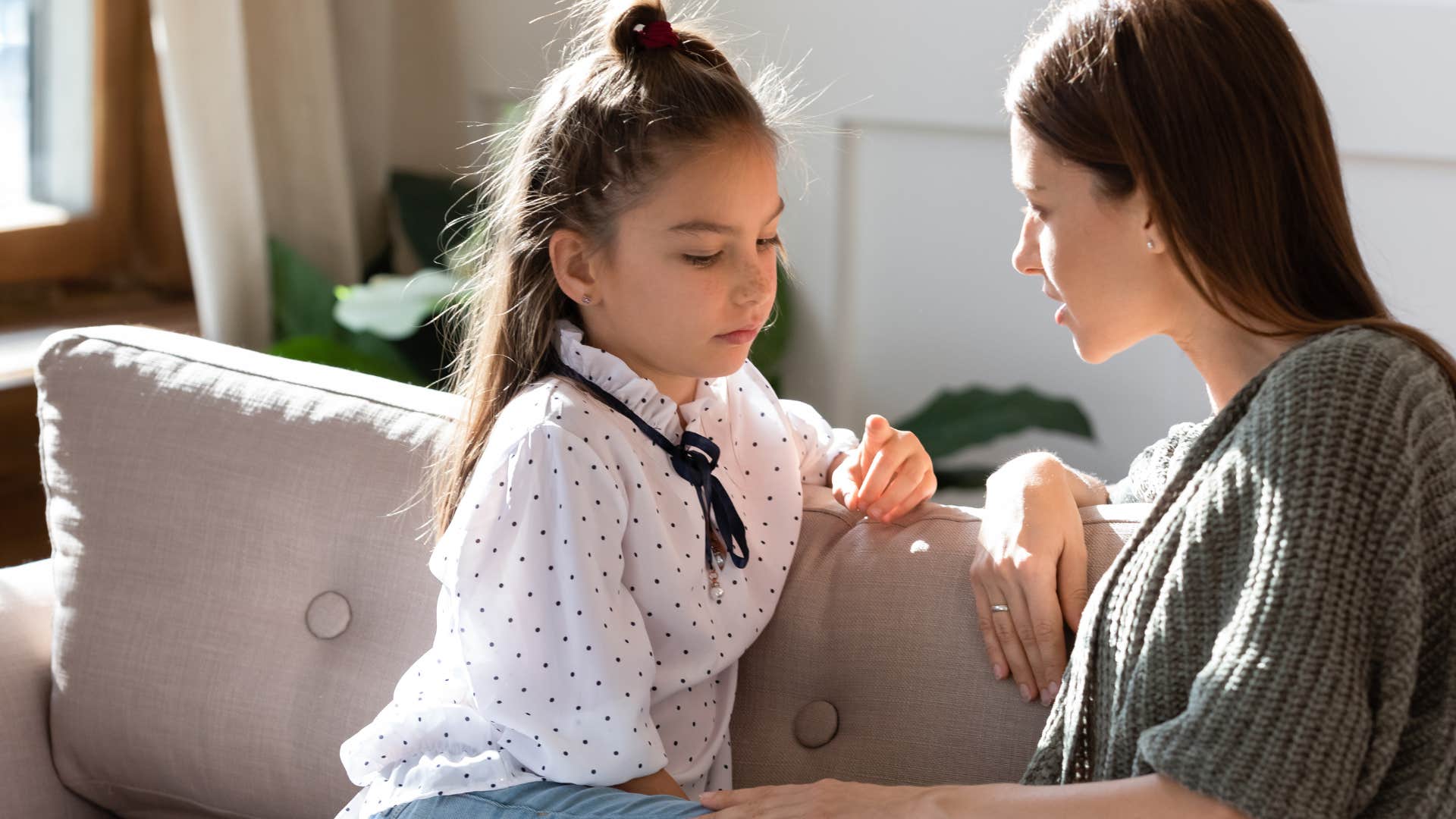 fizkes | Shutterstock
fizkes | Shutterstock
According to a study from the Journal of Behavioral Decision Making, many adult children's mindsets and habits around money are symptoms of their childhoods — they digest the kinds of mentalities that their parents openly display at home. For example, if a parent is constantly saying "we can't afford that" or "do you think I'm rich?" to their kids at the store, they're likely going to adopt some kind of scarcity mindset or shame around spending as adults.
That's why speaking about financial struggles is one of the things good parents tell their kids without realizing how bad it is for them in the long run. Speaking positively about money and teaching kids healthy financial habits is important because it builds their personal financial literacy, but negatively framed conversations can stick with them.
2. Dismissing emotions
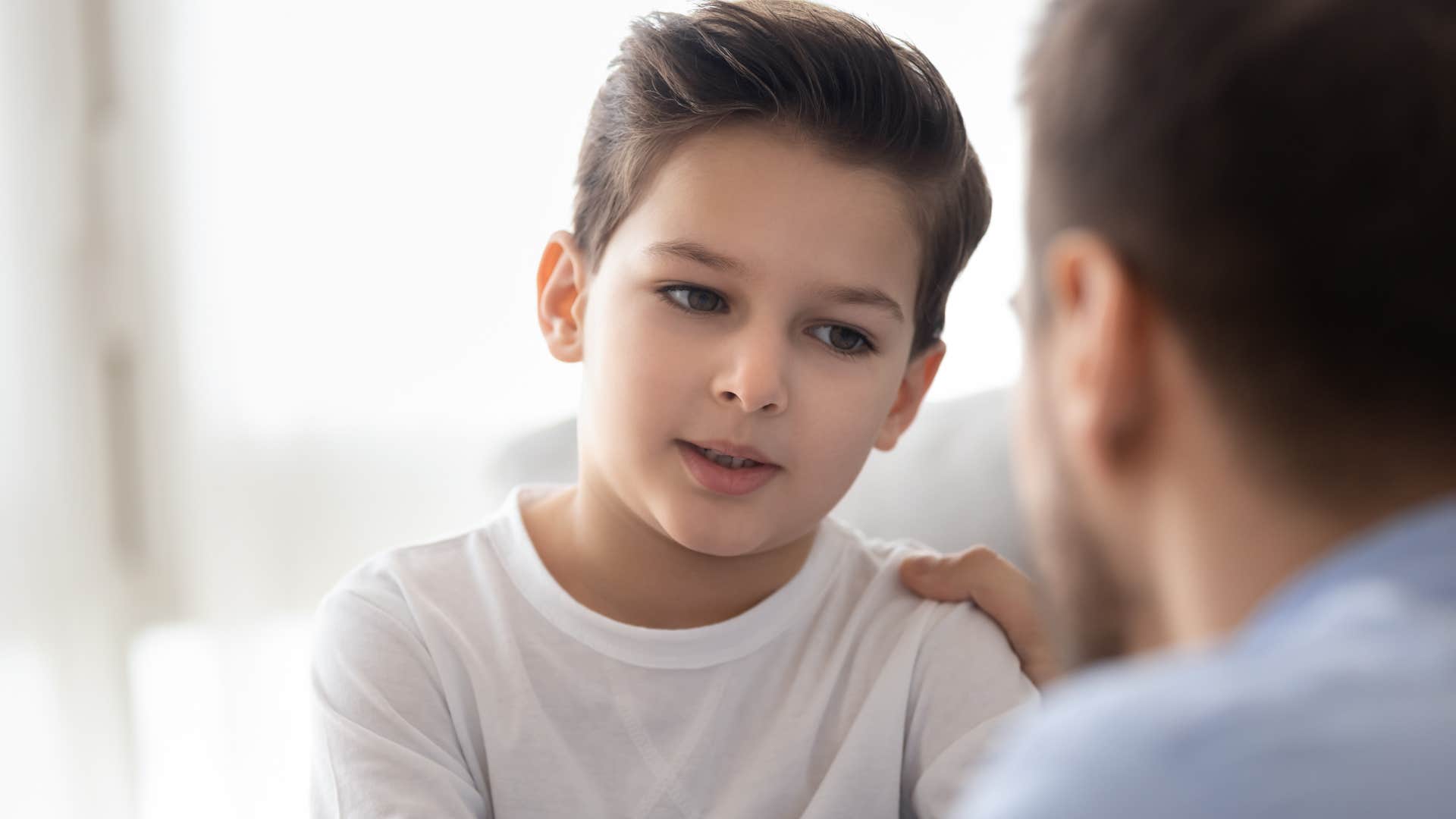 fizkes | Shutterstock
fizkes | Shutterstock
Many kids who grow up with anxiety disorder and general emotional regulation have parents who don't actively teach their kids the tenets of emotional intelligence. Not only do they fail to regulate their own emotions and model healthy behavior, instead resorting to anger and frustration, they also fall short on acknowledging their kids emotionally.
They may have good intentions, telling their kids to "get through it" or "be brave," but they're really just dismissing their kids' emotions and invalidating them when they're just looking to vent and feel supported.
3. Complaints about another parent
 YAKOBCHUK VIACHESLAV | Shutterstock
YAKOBCHUK VIACHESLAV | Shutterstock
According to Dr. Jenna Rowen, Director of the Office of Applied Psychological Services at the University of Illinois at Chicago, parents who talk poorly about their partners or their child's other parents often isolate themselves from a healthy relationship with their children. Not only do they tend to be parentified — mediating arguments and comforting a parents' concerns about a spouse — they take on the emotional burdens, anxiety, and stress of these conversations.
Even if it's a phrase like "your mom isn't very smart," kids digest the negativity of their parents' communication in ways that can easily sabotage their emotional well-being, future relationship-building skills, and empathy for others.
4. Negative self-talk
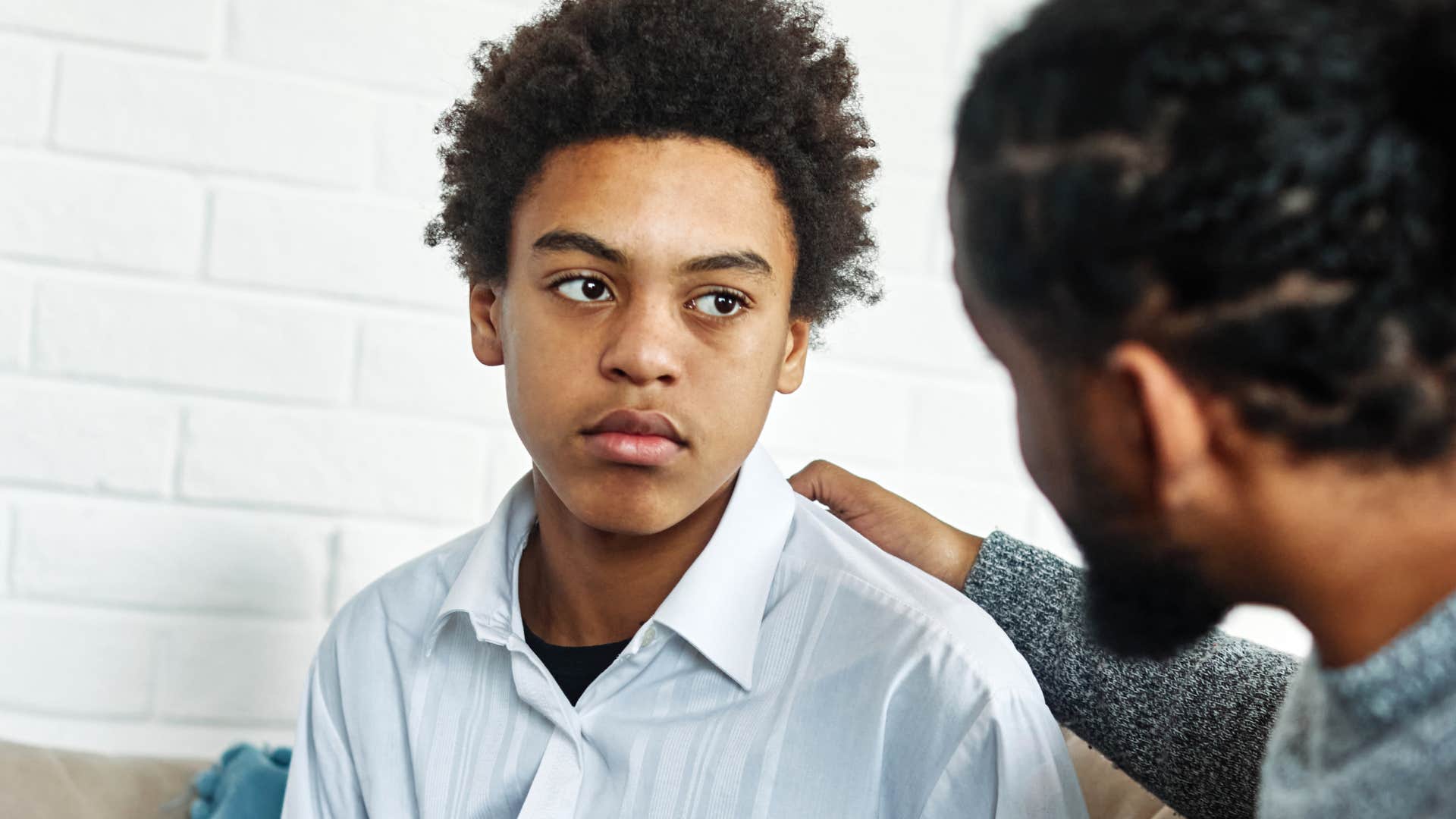 pics five | Shutterstock
pics five | Shutterstock
Children cultivate self-esteem and learn how to be confident from their parents, according to a study from the Journal of Personality and Social Psychology. Alongside behaviors like expressing affection, being emotionally supportive, and crafting safe spaces at home, a parent's ability to communicate their own self-assuredness plays a big role in influencing their kids' personal security.
Negative self-talk is one of the things good parents tell their kids without realizing how bad it is for them, because it normalizes speaking negatively toward yourself and opting out of self-love or care. In addition, these children also tend to struggle with taking accountability, growing from mistakes, building healthy relationships, and seeking out social interactions as a result of missing out on healthy self-esteem building.
5. Gossiping about other people
 Media_Photos | Shutterstock
Media_Photos | Shutterstock
Parents who openly gossip around their kids or talk badly about people behind their backs can subtly deteriorate the trust in their own family dynamic. Not only do kids begin to normalize gossip in their own lives — sabotaging their ability to build trust and connection personally — they also may become overly critical of themselves.
While there are some unexpected benefits to gossiping — from bonding to information sharing — in family dynamics with impressionable children, it can be more bad than rewarding.
6. Personal regrets
 VAKS-Stock Agency | Shutterstock
VAKS-Stock Agency | Shutterstock
Outside of oversharing about their kids online, which is an epidemic on its own, parents who overshare and trauma dump directly to their children can harm them without even realizing. Not only do these conversations tend to strain the parent-child relationship, they often urge kids to take on anxiety and other emotional burdens that worsen their daily lives.
For example, if a parent shares a personal regret about never having the money to play a certain sport, their children may feel pressured to set aside their own interests and needs to appease their parents. Giving their parents a route to live vicariously through them may feel rewarding, but it only adds extra pressure and subtle resentment into the family dynamic.
7. Details about unresolved trauma
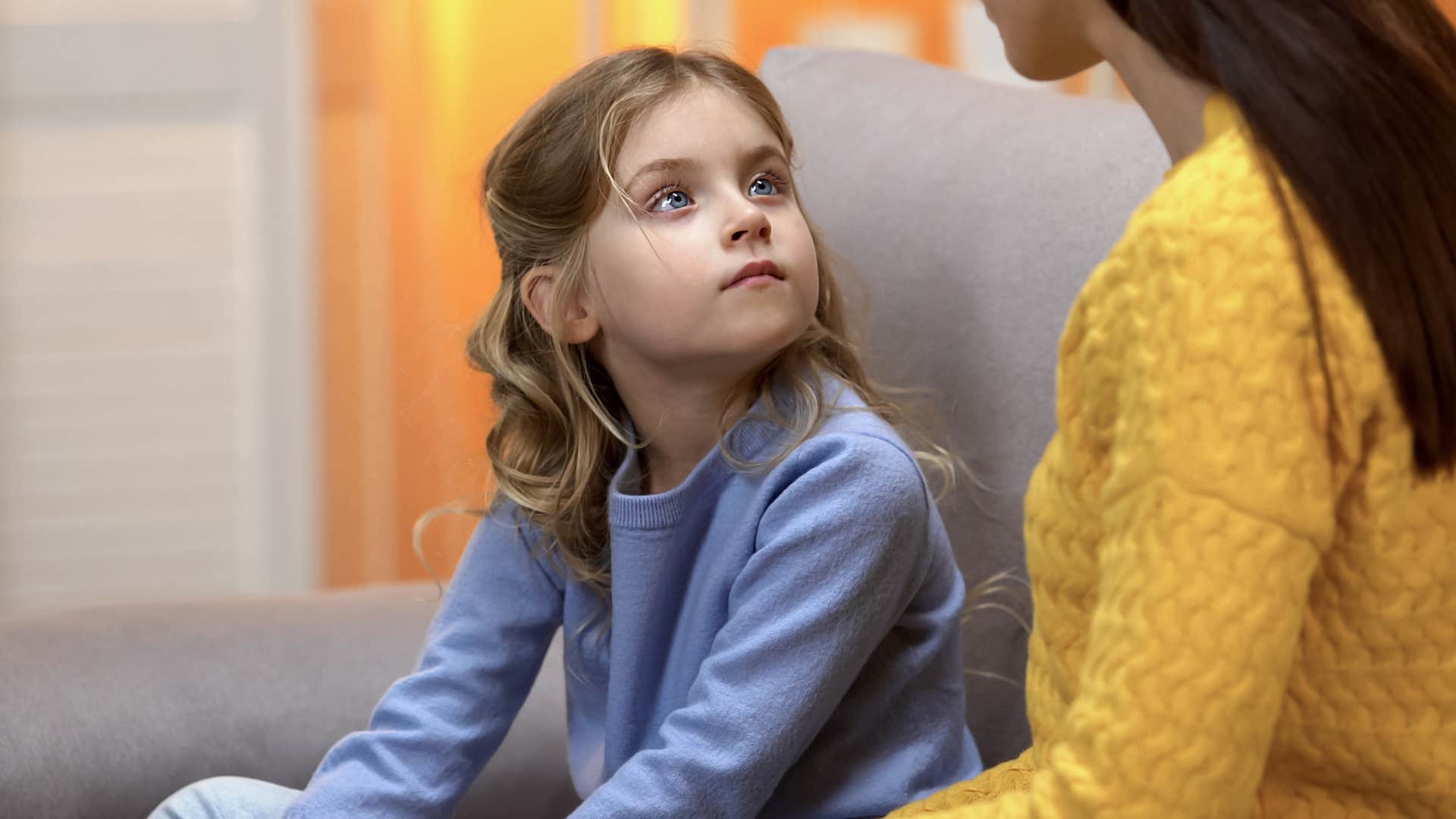 Motortion Films | Shutterstock
Motortion Films | Shutterstock
According to a study from Frontiers in Psychology, unresolved trauma in parents not only negatively impacts their ability to show up physically for their kids, it also tends to strain their emotional connection and relationship. Kids aren't able to process, acknowledge, or understand the unresolved trauma of their parents, especially when they haven't healed from it themselves.
Especially if parents are unknowingly weaponizing their trauma to get what they want from their kids, in subtle gaslighting or manipulative ways, discussions about this unresolved trauma, without restrictions, can be incredibly harmful.
8. Comparisons to a sibling
 fast-stock | Shutterstock
fast-stock | Shutterstock
Phrases like "Why can't you be more like your brother?" aren't just harmful to kids in their most impressionable years early in life, they can linger and spark resentment between parents and their adult children as well. Comparison culture affects us all in different ways, but in the hands of our parents, being compared to other people can feel like betrayal, sparking mistrust and resentment.
While experts suggest that parental favoritism between children isn't a myth — it's actually more common than we all believe — it's possible to both accept and empower children without pitting them against each other, even if parents have a preference.
9. Shaming their hobbies
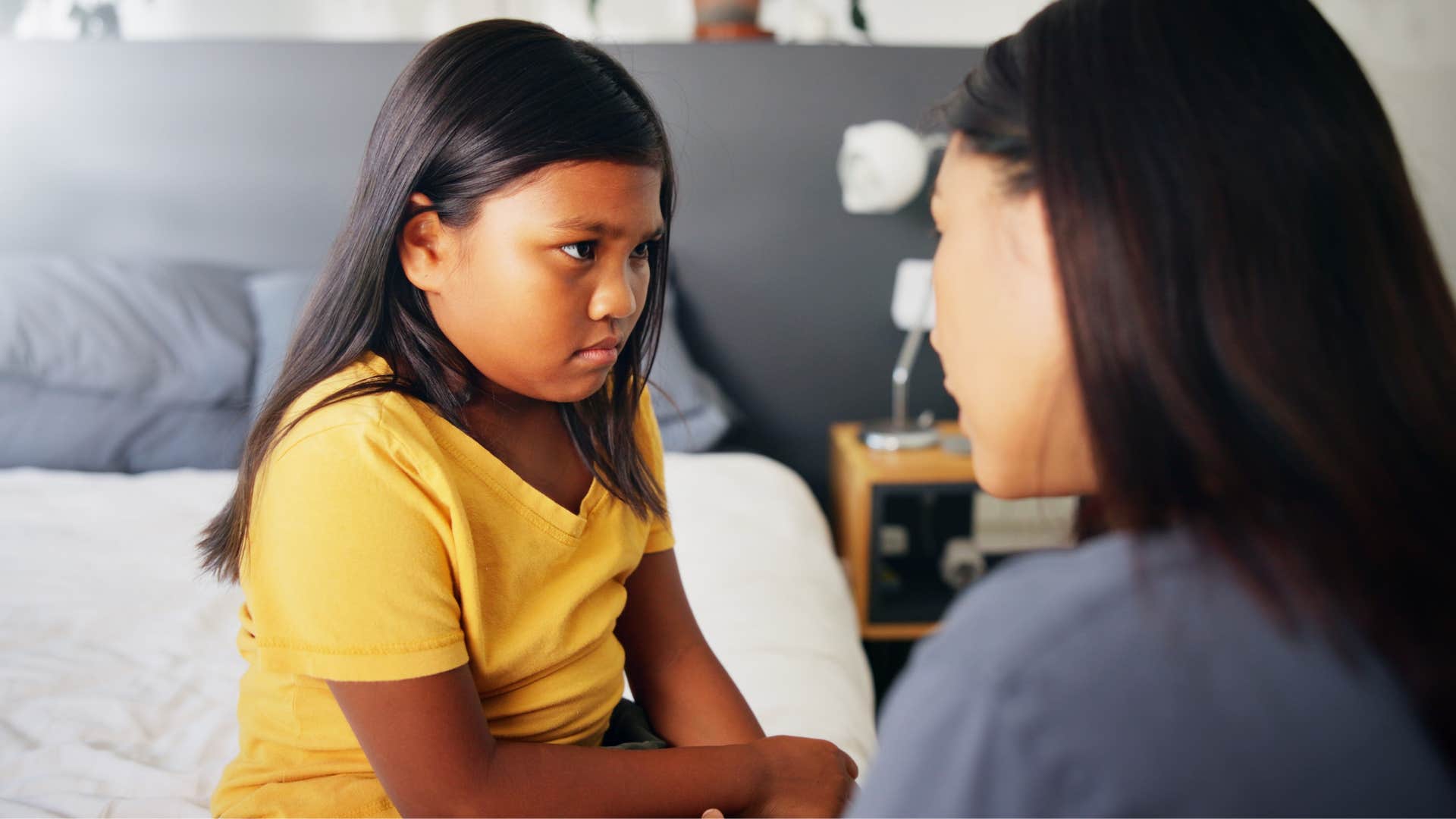 PeopleImages.com - Yuri A | Shutterstock
PeopleImages.com - Yuri A | Shutterstock
From experimenting with self-expression, to trying new hobbies, and even shifting their identities, children go through a million different phases early in their lives. They're at their most impressionable, trying on new personality traits and interests to see what they really like. When they have parents who empower them to do so, they often find and adopt authenticity much faster, but for those that don't, it's low self-esteem and anxiety that sets in.
Shaming hobbies and invalidating kids' identities are some of the things good parents tell their kids without realizing how bad it is for them. They might say things like "stop being so loud" or "if you do that, nobody will like you," without realizing how invalidating and hurtful they are.
10. Offering rewards for good behavior
 LStockStudio | Shutterstock
LStockStudio | Shutterstock
Even if it seems incredibly innocent and useful at the moment, offering rewards and giving punishments for behavior can deteriorate trust and true connection in parent-child relationships. Transactional parents care more about getting what they want from their kids than teaching, giving grace, or emotionally supporting them.
Offering rewards and punishments for behavior is one of the things good parents tell their kids without realizing how bad it is for them, because it feels like a subtle betrayal — in ways that can cause emotional regulation issues, mistrust, and poor communication.
11. Personal adult struggles
 BearFotos | Shutterstock
BearFotos | Shutterstock
Speaking about personal struggles and conflict is one of the things good parents tell their kids without realizing how bad it is for them. Whether it's struggles with dating, financial stress, or some other adult issue, bringing these things up with children forces parentification from a young age.
Part of the reason why so many children grow codependent with their parents is because they're forced to emotionally support and "parent" them from a young age. Their parents aren't self-assured or emotionally intelligent enough to support themselves, so they continue to rely on their kids, even if they don't realize it.
Zayda Slabbekoorn is a staff writer with a bachelor's degree in social relations & policy and gender studies who focuses on psychology, relationships, self-help, and human interest stories.

